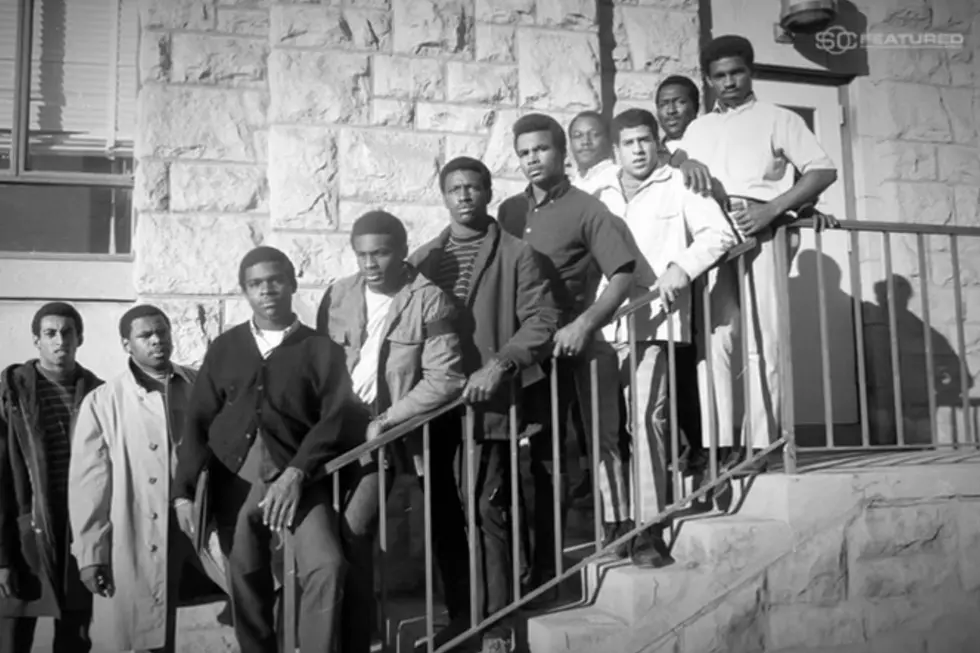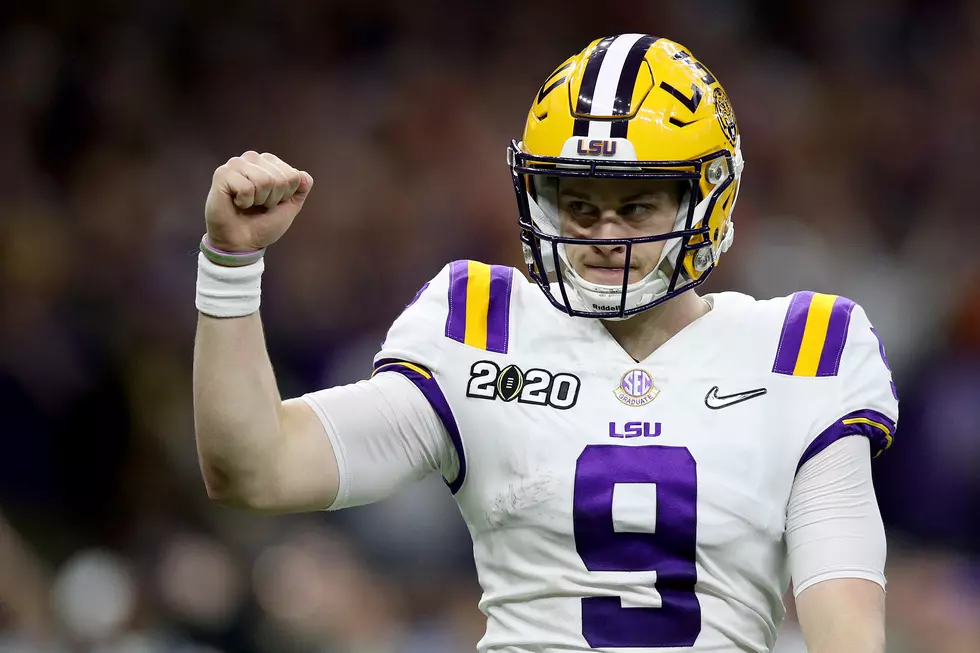
Wyoming ‘Black 14′ To Be Honored By NCAA Next Month
14 Black University of Wyoming football players who were kicked off of the team in 1969 for wanting to wear black armbands in a game to protest policies then in place in the Church of Jesus Christ of Latter-Day Saints will be honored with the NCAA Inspiration Award next month.
That is according to an NCAA news release.
In 1969, the church had a policy (which has since been changed) of not allowing Black people to serve as high priests or enter the temple. Wyoming was undefeated in October of 1969 going into a game against Brigham Young University, which was a conference rival at that time. BYU is owned and operated by the church.
While the 14 African-American UW players decided against an active protest against the church policies, they chose to wear black armbands to express opposition to the policy.
However, when they went to Cowboys coach Lloyd Eaton to discuss the armbands, they did not find the coach receptive to the idea.
The release quotes one of the 14, Mel Hamilton, on coach Eaton's reaction:
"We didn't have the intention of going over and giving him an ultimatum," said Hamilton, who played right guard. "We didn't discuss what we would do beforehand if he said no. But we never had any intentions of not playing the game the next day."
According to the players, when Eaton stepped out of his office, he immediately informed them they were no longer members of the team. He then told them to go with him into the field house, where he berated them.
The release then quotes Tony McGee, who went on to play for 14 seasons in the NFL:
"He told us that half of us didn't know who our fathers were," McGee said. "He said, 'I picked you up, McGee, off the streets of Battle Creek, Michigan, picking up cigarette butts.' I didn't even smoke. He said something about going to Grambling, too. The final thing he said was, 'You can go back to your hometown and get on relief,' and then he said, 'Colored relief.'"
John Griffin, an outstanding wide receiver, recalls the dilemma he faced at that time in the release:
"I didn't have anywhere to go, and I was concerned that if I transferred, how many of my credits would be accepted at another school," said Griffin, who said a couple of faculty members helped him obtain scholarship money. "Each of us had to figure things out."
Griffin and Don Meadows were allowed to return to the team. The players were voted back on the team by a vote of the other players. A total of five of the ''Black 14" ended up staying on campus
Here is the list of the Black 14 as named in the release:
- Jay Berry — Became a sports anchor for television stations.
- Tony Gibson — Worked for nearly 38 years as a lineman for a Massachusetts power company.
- John Griffin — Became a leader in corporate America, including the Brand Co. and United Airlines.
- Lionel Grimes — Became an employment diversity executive for Ford Motor Company.
- Mel Hamilton — Became the first Black principal in Wyoming.
- Roy Hill — Became a physical education teacher in Denver.
- Guillermo Hysaw — Became vice president of Lexus Japan.
- Jim Isaac — Graduated from Dakota Wesleyan and became a professor. He died in 1976.
- Earl Lee — Became a teacher, coach, and principal in Maryland. He died in 2013.
- Tony McGee — Played 14 years in the NFL, including winning Super Bowl XVII with Washington. Television talk show host for more than three decades.
- Don Meadows — Graduated from Wyoming after returning to the team and was an all-conference performer. He died in 2009.
- Ivie Moore — Became a flooring contractor in his native Arkansas.
- Joe Williams — Played four years in the NFL, including winning Super Bowl VI with Dallas.
- Ted Williams — Worked nearly four decades as a foreman at an Illinois manufacturing company."
UW nominated the players for the award, which will be given on Jan. 11 at the NCAA convention in Las Vegas. In addition, BYU honored the group in 2019 as an apology for the ugly chapter.
Here is a youtube video from ESPN on the Black 14:
Tips To Merge Safely Onto Wyoming Roads
More From K2 Radio









